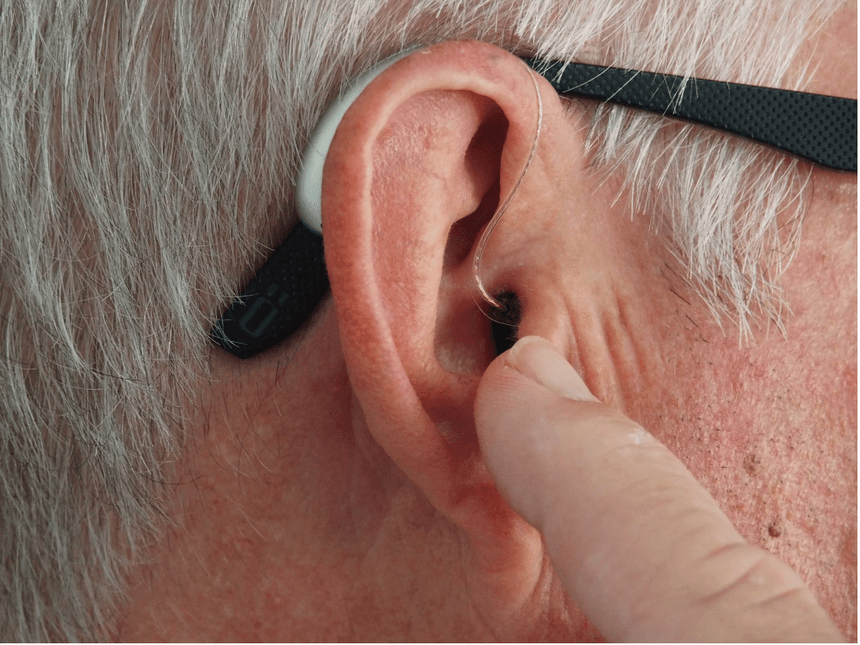Here And Now
Breaking the Silence: Understanding the Stigma Surrounding Hearing Loss and Hearing Aids

Hearing loss affects millions of people worldwide, with 12.1 million people in the U.K also having hearing loss. Yet a pervasive stigma surrounds this common condition and the use of hearing aids. This stigma, rooted in misconceptions and societal attitudes, often leads individuals to delay seeking help and adopting assistive devices. Understanding the reasons behind the stigma is essential for fostering a more inclusive and supportive environment for those with hearing loss.
1. Social Perceptions and Misconceptions
Visible vs. Invisible Disabilities: Unlike visible disabilities, such as using a wheelchair, hearing loss is often invisible. This invisibility can lead to misunderstandings, with others assuming that individuals with hearing loss don't face significant challenges.
Association with Aging: Hearing loss is commonly associated with aging, contributing to negative stereotypes and biases. The prevailing notion that hearing loss is an inevitable part of growing older can lead to feelings of embarrassment or shame.
2. Communication Challenges
Misinterpretation as Inattentiveness: People with hearing loss may struggle to follow conversations in noisy environments, leading others to misinterpret their behaviour as inattentiveness or disinterest. This misunderstanding can result in social exclusion and further stigmatisation.
Fear of Communication Breakdown: The fear of miscommunication or the potential for awkward interactions can lead individuals with hearing loss to withdraw from social situations, reinforcing the stigma associated with their condition.
3. Technology Perception
Stigmatisation of Hearing Aids: Despite technological advancements making hearing aids discreet and sophisticated, outdated perceptions persist. Some individuals associate hearing aids with aging, weakness, or a perceived decline in cognitive abilities, reinforcing the stigma surrounding their use.
Lack of Awareness and Education: Limited public awareness and education about the prevalence of hearing loss and the benefits of hearing aids contribute to the perpetuation of stereotypes and misconceptions.
4. Psychological Barriers:
Self-Stigmatisation: Individuals with hearing loss may internalize societal attitudes, leading to self-stigmatization. The fear of being judged or perceived as different can prevent people from seeking timely help and adopting hearing aids.
Impact on Mental Health: The stigma surrounding hearing loss can have a profound impact on mental health, contributing to feelings of isolation, depression, and anxiety. Breaking down these psychological barriers is crucial for promoting overall well-being.
5. Changing the Narrative:
Promoting Awareness: Public awareness campaigns that highlight the prevalence of hearing loss and challenge stereotypes can contribute to changing societal attitudes. Education about the importance of timely intervention and the benefits of hearing aids is essential.
Encouraging Open Conversations: Fostering open dialogues about hearing loss can help normalize the condition and reduce the stigma associated with it. Sharing personal experiences and success stories can inspire others to seek help without fear of judgment.
Emphasizing Inclusivity: Creating inclusive environments that accommodate individuals with hearing loss can help break down barriers. This includes implementing hearing-friendly designs in public spaces and fostering understanding in workplaces and social settings.
The stigma surrounding hearing loss and the use of hearing aids is a complex issue rooted in societal perceptions, communication challenges, and psychological barriers. At the Ear Place we want to break down this stigma. Our aim is to promote awareness, encouraging open conversations, and emphasise inclusivity. We want to work towards dismantling these stigmas and fostering a more supportive and understanding society. Breaking the silence around hearing loss is not only a matter of individual well-being but also a step toward creating a more inclusive and compassionate world for everyone. Why not book a hearing assessment to come in to check the health of your hearing and take the first steps in breaking the silence and stigma around hearing loss and hearing aid.